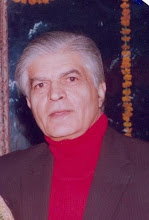
The Human Body
Nervous System 3
HOW DOES THE NERVOUS SYSTEM WORK?
Life, the hum, and electric flow.
Neuron.
The Nervous System depends on the function of neurons (nerve cells) present in the CNS, PNS and ANS.
Each nerve cell has a long arm (axon), that carries on electric signal to the next neuron, where it is converted into a chemical signal.
The next neuron, on receiving the chemical transmitters then converts, and conveys the electric signal to the next neuron cell, till it reached the final target cells.
It also has short branching arms (dendrites), nerve signal enter through these short arms.
Nerve Impulse Chemicals - ions and electric charge
This impulse is brought about by the movement of chemical ions either into or out of a neuron.
- These ions, have an electric charge, this causes the flow of an electric current with the flow of ions.
- When the signal reaches a junction, between two neurons (synapse), It causes the release of neurotransmitters, to stimulate the ion movement in the next neuron.
This impulse flows at a speed of 320 kilometers per hour.
This is much slower than the speed of electricity.
Thus there is a delay in reaction or reaction time for every action.
Any questions be sent to drmmkapur@gmail.com
All earlier posts are stored in archives for your access and review





No comments:
Post a Comment